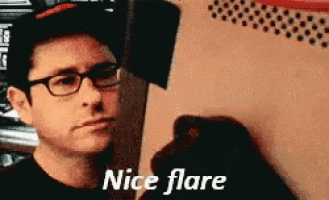Ninja'd.This was called Star Trek: Voyager.
There's no difference between the premise of setting a show "in unexplored space," "The Delta Quadrant," or "another galaxy." None.
I see I missed it by months. We're still here?

Ninja'd.This was called Star Trek: Voyager.
There's no difference between the premise of setting a show "in unexplored space," "The Delta Quadrant," or "another galaxy." None.

Or consider a hybrid approach, hinted at by TOS and TNG. Some stories told as stand alone episodes. Other stories told as two-parters, or even three-parters.Probably one of the bigger variables we can consider is serial vs episodic.
Give that a little bit of Horatio Hornblower military flare, and you just might be onto something!Wagon Train to the stars!
The original Wagon Train was a Western. It was based on a "walking the land" trope. The cast included a few regular characters, lending the show a bit of continuity. But the show would tend to focus on guest stars, as members of the wagon train, or people met along the way.
Which makes for a fairly versatile format.
I think one might invent a semi-anthology format that is unusually versatile, second only to Dr. Who.
Ninja'd.
I see I missed it by months. We're still here?
Isn't that a Springsteen song?

This point was more or less contained in the post I quoted, but, yes, absolutely.Actually, 90% of VOY's episodes could easily have taken place in the Alpha Quadrant.
Give that a little bit of Horatio Hornblower military flare, and you just might be onto something!

Or consider a hybrid approach, hinted at by TOS and TNG. Some stories told as stand alone episodes. Other stories told as two-parters, or even three-parters.
Use of Star Dates to obscure the time period.
Unlike the leap from TOS to TNG, there’s now a lot of ground that’s been covered
Absolutely! This is the issue really - you can't really compare what TNG did to TOS, because more or less it was just a new crew, on a new Enterprise, doing more TOS things with an 80s sensibility. There was plenty of new things to do with that concept. Since then, a helluva lot more ground has been covered.When TNG aired, there had been 79 episodes, 22 animated saturday morning cartoons, and 4 films, about 85 hours.
Today there's about 700 hours of material.
We use essential cookies to make this site work, and optional cookies to enhance your experience.
